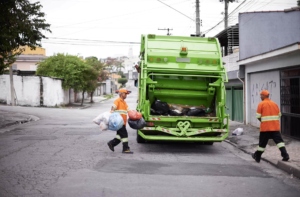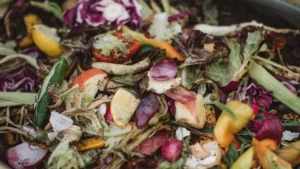Reduce Restaurant Waste Cost
How To Reduce Restaurant Waste Management Costs
The cost of managing restaurant waste can be high, but there are a number of things that restaurants can do to reduce these costs. The USDA estimates that the restaurant industry wastes 22 to 33 billion pounds of food each year, costing the industry an estimated $162 billion annually.
One way to reduce waste management costs is to recycle food and restaurant waste. The cost of recycling food and restaurant waste can vary depending on the size of the restaurant and the type of waste. However, in general, collection costs are higher for food waste than for other types of waste. This is because food waste is often wet and heavy, which makes it more difficult to collect and transport.
The cost of processing food and restaurant waste can also vary depending on the type of waste. For example, the cost of composting food waste is generally lower than the cost of recycling food waste. This is because composting does not require as much energy or equipment as recycling.
Call CheckSammy today and start improving tomorrow!
The cost of landfill disposal for food and restaurant waste is generally lower than the cost of collection and processing. However, landfill disposal does not have the same environmental benefits as recycling or composting.
How To Reduce Restaurant Waste Management Costs
1. Donation
Donating food that is still edible to food banks and other organizations that can accept donations is a great way to reduce food waste and help those in need. This is a free option, as the food banks will usually come to pick up the food.
There are a few things to keep in mind when donating food:
- The food must be still edible. If the food is past its expiration date or has been damaged, it cannot be donated.
- The food must be packaged properly. The food should be in sealed containers or bags to prevent it from spoiling.
- The food must be delivered to the food bank in a timely manner. The food bank will not be able to accept food that is past its expiration date or that has been damaged.
2. Composting
Composting food scraps that cannot be donated is another great way to reduce food waste. This can be done in-house or by using a third-party composting service. Composting can save money on disposal costs, as well as create nutrient-rich soil that can be used to grow plants.
There are a few things to keep in mind when composting food scraps:
- The food scraps must be properly composted. The scraps should be added to a compost bin or pile and turned regularly so that they can break down properly.
- The compost must be stored properly. The compost should be stored in a cool, dark place so that it does not spoil.
- The compost can be used to improve soil quality. The compost can be added to garden beds or potted plants to improve the soil quality and help plants grow.
3. Recycling
Recycling food packaging and other recyclable materials can also save money on disposal costs. This is especially true if the restaurant is able to sell the recyclable materials to a recycling company.
There are a few things to keep in mind when recycling food packaging and other recyclable materials:
- The materials must be properly sorted. The materials should be sorted into different categories, such as paper, plastic, metal, and glass.
- The materials must be clean. The materials should be free of food and other debris before they are recycled.
- The materials must be baled or bundled. The materials should be baled or bundled to make them easier to transport and recycle.
4. Landfilling
Landfilling food waste is the least preferred option, as it does not have the same environmental benefits as the other options. However, it can be the cheapest option, depending on the local regulations.
There are a few things to keep in mind when landfilling food waste:
- The food waste must be properly disposed of. The food waste should be buried in a landfill so that it does not pollute the environment.
- The landfill must be properly monitored. The landfill should be monitored to ensure that the food waste does not leach into the groundwater or soil.
Partner With CheckSammy
There are a number of options available to restaurants for managing their waste. The best option for a particular restaurant will depend on a number of factors, such as the size of the restaurant, the type of food that is served, and the local regulations.
CheckSammy is a partner for restaurants that are looking to reduce their waste and save money. We offer a comprehensive range of waste management services, including donation, composting, recycling, and landfilling. We are committed to helping restaurants reduce their environmental impact.
Contact CheckSammy today!
See Our Services
Create a custom solution to meet your waste and sustainability goals. Contact us today!
Continue reading
Dive deeper into the CheckSammy Blog by reading one of our posts below
Feeling the Pain of Higher Resident Turnover? Apartment Junk Removal Can Help
If you’re a property manager, you’ve probably had a significant increase in tenant turnover over the last couple of years. So it’s no wonder apartment junk removal may be top of mind for you right now. There are several reasons for this shift. For one, the housing market is on fire right now. In 2020 […]
Read More About Feeling the Pain of Higher Resident Turnover? Apartment Junk Removal Can HelpSetting Up a Community E-waste Recycling Program
E-waste is the fastest-growing municipal waste stream according to the EPA, yet e-waste recycling isn’t keeping pace. In fact, only 12.5% of all e-waste is recycled, reports the EPA. Starting a community e-waste recycling program is a terrific way to ensure hazardous e-waste, like lithium-ion batteries, doesn’t end up in your community’s landfill. Creating an […]
Read More About Setting Up a Community E-waste Recycling ProgramWaste Management’s Role in the Circular Economy
Establishing a waste management program for your business or community is one of the best ways you can contribute to the circular economy. Here’s everything you need to know about waste management’s role in the circular economy (and how to get involved). What Is the Circular Economy? Our current economic model is all about taking […]
Read More About Waste Management’s Role in the Circular Economy5 Reasons to Consider a Textile Recycling Program for Your Organization
Americans sent more than 17 million tons of textiles to landfills in 2018, a volume that is only increasing every year, reports the Environmental Protection Agency. When you think about the fact that it can take over 200 years for textiles to decompose, it’s easy to grasp how large textile waste’s contribution is to the […]
Read More About 5 Reasons to Consider a Textile Recycling Program for Your Organization8 Benefits of Environmentally Friendly Power Washing Services
If you’re into maintaining the curb appeal of your business or home, then you’ve probably heard of pressure washing. Pressure cleaning involves using high-pressure water spray to remove grime, mold, dust, paint, mud, and other junk from objects or surfaces. Many people worry that pressure washing isn’t good for the environment, but this couldn’t be […]
Read More About 8 Benefits of Environmentally Friendly Power Washing ServicesWhy Our Customers Love Our Full-Service Junk Removal
If you’re looking for full-service junk removal services, you’ve come to the right place. CheckSammy is a one-stop shop for all your junk removal and sustainability needs. From our affordability, simplicity, and unrivaled turnaround times to our innovative sustainability solutions and patented technology and data, it’s clear why some of North America’s biggest companies choose […]
Read More About Why Our Customers Love Our Full-Service Junk RemovalTips for a Stress-Free Move From An Eco-Friendly Junk Removal Company
What does an eco-friendly junk removal company know about moving? Quite a lot, actually. Moving can be an especially chaotic time. You have to pack everything up, get rid of unwanted items, clean your property, load everything up, and move your things to your new location. That doesn’t even include the unpacking and resettling period. […]
Read More About Tips for a Stress-Free Move From An Eco-Friendly Junk Removal CompanyCollege Junk Removal Tips for Student Move-In Day
As the new school year gears up, colleges across the country are looking for ways to clean up their campuses before the new year begins, and many of them want to do so sustainably. College junk removal isn’t easy, though, especially around move-in week—and when trying to do so sustainably. As students move in and […]
Read More About College Junk Removal Tips for Student Move-In Day8 Items Hospitality Businesses May Not Know They Can Recycle
One hotel guest produces 2.5 pounds of trash every single day. Just a single hotel room produces around one cubic yard of waste each month, which totals 200 gallons of waste per room every month. Most of this waste goes straight to the landfill, even though research shows that up to 60% of it is […]
Read More About 8 Items Hospitality Businesses May Not Know They Can Recycle












